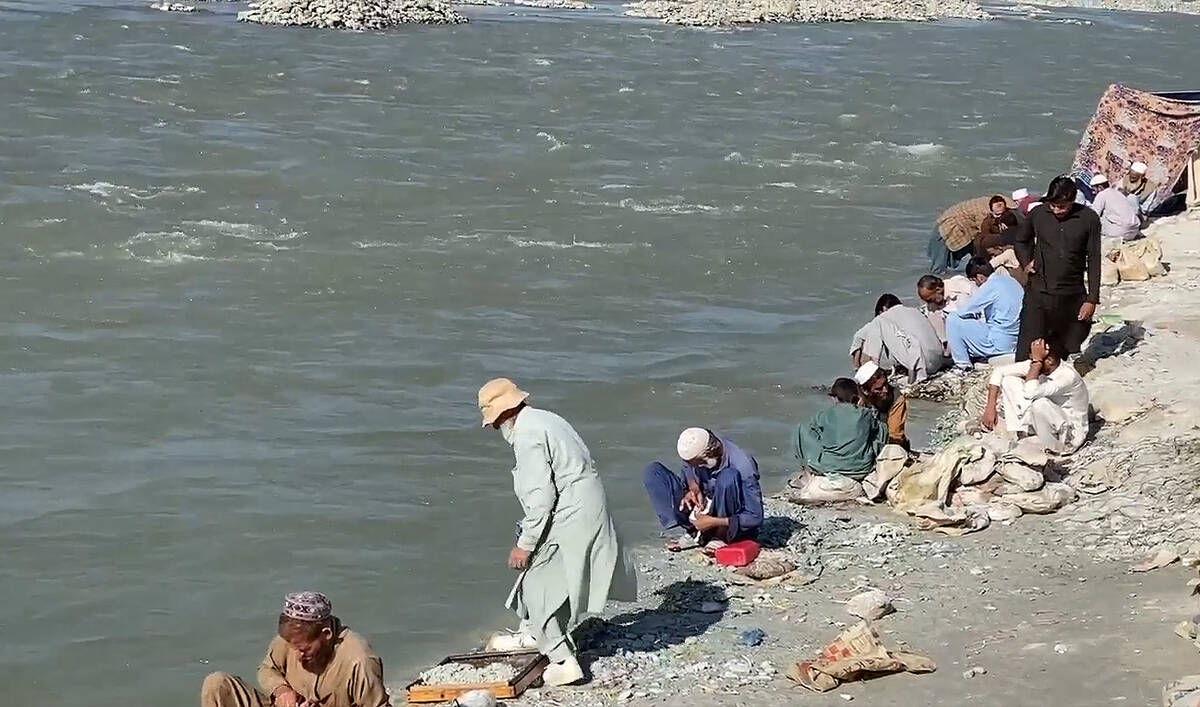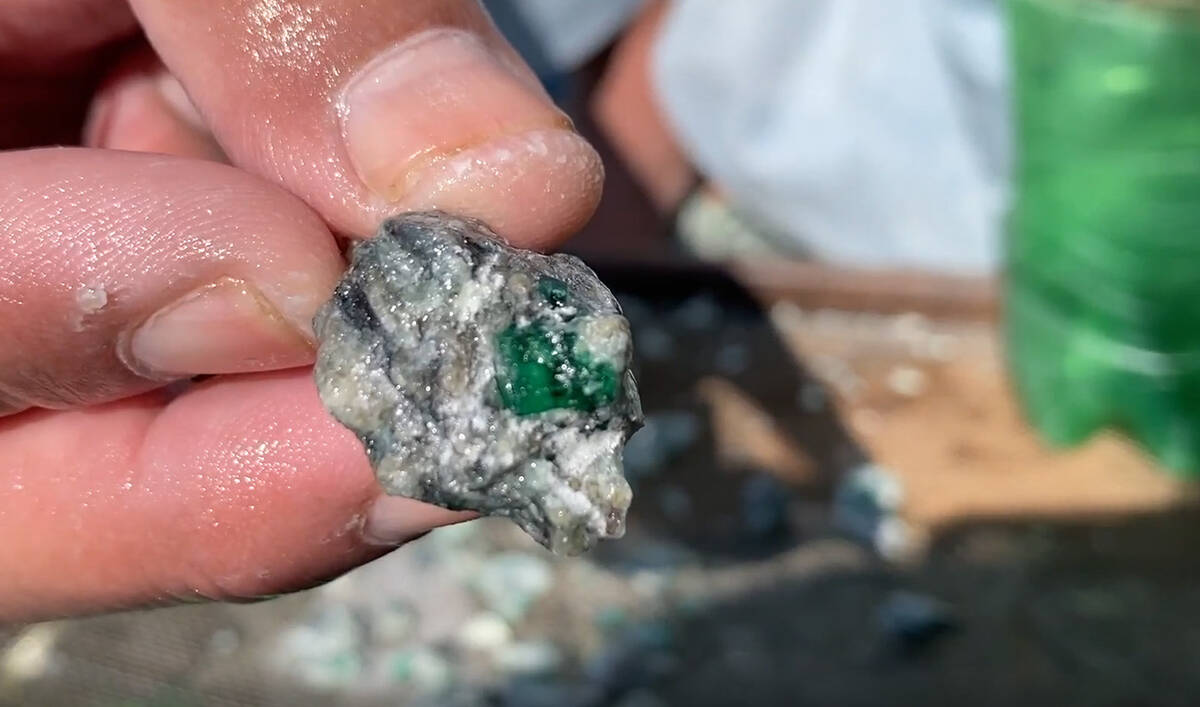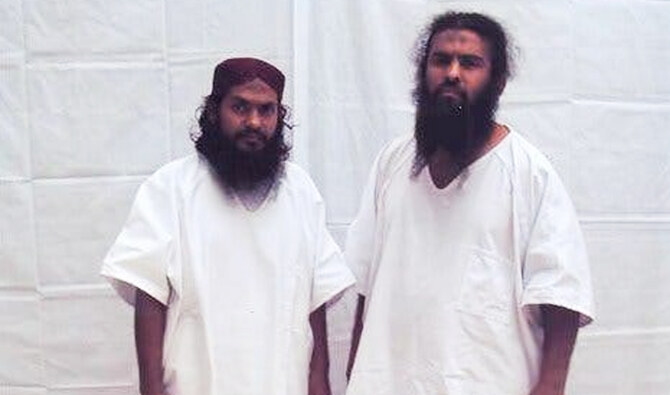KARACHI: A former Guantanamo Bay prisoner from Karachi, who spent about two decades at the detention center without being charged before his return home in February last year, died in his native city on Friday, his brother and a fellow former detainee confirmed on Saturday.
Abdul Rahim Ghulam Rabbani’s death was attributed by his brother, Muhammad Ahmed Ghulam Rabbani, to inadequate medical care during a prolonged illness, which he said extended their suffering even after their transfer to Pakistan.
According to Reprieve, a global legal action non-profit, the brothers endured 545 days of torture in CIA custody following their arrest in Karachi on September 10, 2002, before being transferred to Guantanamo in 2004.
“We spent over twenty arduous years together in Guantanamo,” said the late former Guantanamo detainee’s brother. “On Friday at 2 AM, he passed away in my arms.”
Guantanamo Bay, a US military detention facility established in Cuba to detain suspects in the “War on Terror” after the September 11, 2001, attacks, became notorious for holding prisoners without trials, drawing widespread condemnation.
International human rights groups criticized the facility for violating detainees’ rights to due process, with allegations of extreme interrogation techniques amounting to torture, including waterboarding and prolonged isolation.
Rabbani recalled that both brothers briefly felt relief when they learned they would be handed over to Pakistani authorities, believing their ordeal would end.
“But our suffering continued,” he said. “Over 19 months, we still lack identity cards. My brother had been ill for a long time, but we couldn’t access proper medical care without an ID.”
He added that his brother fell “seriously ill” more than 20 times, attributing it to injections administered upon their arrival at Guantanamo and the extensive torture they endured.
“He suffered such violence that his hand was broken, his leg was broken and his private parts were damaged, ruining his family life,” Rabbani said. “When he passed away, we even faced difficulties in burying him because an ID card was required.”
Overwhelmed by their circumstances, he questioned why they were returned to Pakistan when their own government was unwilling to issue identity documents.
“My dearest brother has left me behind,” he added. “He did not have peace for even a single day after the arrest. What was our crime? What is our crime?”
In the early 2000s, Pakistan apprehended and transferred hundreds of individuals to US custody, claiming they were linked to Al Qaeda. In his 2006 memoir, In the Line of Fire, then-President Pervez Musharraf said his government had received substantial CIA payments for these handovers.
Subsequent analyzes revealed that many of these detainees, mistakenly identified as militants, were likely innocent.
Lahore-based analyst Majid Nizami called the Rabbani brothers’ arrest “a case of illegal abduction by state agencies of Pakistan,” later justified as “mistaken identity.”
“It’s unclear whether this was intentional by Pakistani agencies or a severe negligence,” he told Arab News. “It has not yet been determined who was responsible, and no one seems interested in addressing the issue.”
According to some estimates, Pakistani authorities handed over nearly 370 people to the US after 9/11. The two brothers were among those transferred to American custody for $5,000 each.
‘He never found peace’: Former Guantanamo detainee from Pakistan dies after years of suffering
https://arab.news/yr6jy
‘He never found peace’: Former Guantanamo detainee from Pakistan dies after years of suffering

- Abdul Rahim Ghulam Rabban died after prolonged illness due to a lack of proper medical care
- Arrested in Karachi in 2002, he spent about two decades at the US prison without ever being charged
Pakistan foils bid to smuggle donkey hides worth Rs80 million to China

- Pakistan is frequently listed as one of the countries with highest number of donkey populations worldwide
- The animal’s meat and hide, used in the Ejiao traditional medicinal remedy, are quite popular in China
KARACHI: Pakistan Customs has foiled an attempt to smuggle donkey hides, worth around Rs80 million ($283,862), to China, a customs spokesperson said on Friday.
The staff deployed on the Risk Management Profiling System of the Karachi customs collectorate detected a container number SEGU-3154225 cleared from the South Asia Pakistan Port (SAPT) terminal in Karachi, whose export documents showed 285 packages of leather products were being sent to China by Messrs. Wow Trading.
The container was allowed to be loaded on a ship after the export collectorate issued a permit, but customs authorities conducted a detailed inspection after being informed by the Anti-Smuggling Organization (ASO) staff and found the prohibited donkey hides in the container.
“[The inspection] resulted in the recovery of 14,000 kilograms of prohibited donkey hides, declared under the guise of leather products, in the container, the export of which is prohibited under the export policy of the Government of Pakistan,” Irfan Ali, a customs spokesperson, said in a statement.
“A case has been registered against the exporter under the relevant provisions of the Customs Act. Further investigation is underway.”
Pakistan is frequently listed as one of the countries with the highest number of donkey populations worldwide, with Islamabad reporting its donkey population had increased to 5.9 million during the fiscal year 2023-24 from 5.5 million in 2019-2020, according to the Pakistan Economic Survey (PES) 2023-24.
The animal’s meat and hides are quite popular in China. Gelatin derived from donkey hides is highly sought after in China for its use in Ejiao, a traditional medicinal remedy. Several Chinese eateries sell donkey meat and burgers for consumption.
The seizure of donkey hides comes amid a Pakistani government crackdown on smuggling of various goods.
“Karachi Customs Enforcement Collector Moinuddin Wani appreciated and praised the performance of the officers and staff of the enforcement collectorate for this successful operation,” Ali added.
Threat of war with India empties scenic Pakistani valley of summer tourists

- Gunmen last week killed 26 people in the Indian-administered Kashmir’s resort town of Pahalgam
- The attack has fueled tensions after India blamed Pakistan for the attack, Islamabad denies charge
MUZAFFARABAD: Neelum Valley in northern Pakistan attracts some 300,000 tourists each summer who marvel at its natural beauty. But the threat of war with nearby India has emptied its hotels.
Gunmen last week killed 26 people in the Indian-administered Kashmir’s resort town of Pahalgam, fueling tensions between the nuclear-armed nations after India blamed Pakistan for the attack, a charge Pakistan denies.
Neelum Valley is less than 3 kilometers (1.8 miles) from the Line of Control, the de facto border that divides the disputed region of Kashmir, making it vulnerable to any military activity.
Hotel owner Rafaqat Hussain said Thursday the crisis has hit the tourism industry hard.
“Most tourists have left and returned to their cities because there is a risk of war,” he said.
Authorities in the Indian-controlled part of Kashmir temporarily shuttered dozens of tourist resorts following the attack as a precaution.
No such order has come from Pakistani authorities. Bazaars in the Pakistani border town of Chakothi were open for business, although people were concerned.
“First of all, our prayer is for peace, as war always affects civilians first,” shop owner Bashir Mughal told The Associated Press, saying he would fight alongside the army in the event of conflict.
Pakistan used to help residents build bunkers near their homes during periods of intense cross-border firing. But the population has grown and some homes lack shelters.
“Local casualties could be devastating if war breaks out,” Mughal warned.
Saiqa Naseer, also from Chakothi, shuddered at the childhood memories of frequent firing across the border.
“Now, as a mother, I find myself facing the same fears,” she said.
She remembered Indian shells striking the picturesque valley when the two countries came close to war in 2019. She has a bunker at her home.
“If war comes, we will stay here. We won’t run away,” she said.
Rising Jhelum River threatens people in Azad Kashmir

- The development comes after India’s suspension of the Indus Waters Treaty, cutting off vital flood data
- Locals face growing uncertainty and increased risk, say they received no prior notification of water release
MUZAFFARABAD, Azad Kashmir: Rising water levels along the Jhelum River in Muzaffarabad in Azad Kashmir have caused concern for thousands of residents living downstream.
With India releasing more water than usual into the river and the suspension of the Indus Waters Treaty cutting off vital flood data, locals face growing uncertainty and increased risk.
Along the riverbank, 72-year-old Rafiq Hussain and his family of six have been watching floodwaters creep within meters of their home.
“When India released the water, the river rose by eight to ten feet. There’s a lot of fear and uncertainty, especially after hearing reports that more water could be released without any warning,” he said.
Hussain, a farmer and father of four, said they received no prior notification of the water release. He estimates that over ten thousand people residing in about one thousand homes along the riverbank are directly exposed to the flood risk.
The 1960 Indus Waters Treaty, once a rare symbol of cooperation, is now in question. India claims sovereignty over water use, while Pakistan warns of weaponization of a shared resource.
“Well there are bilateral agreements between India and Pakistan, but this Indus Waters Treaty is trilateral. It’s not between only India and Pakistan, but the World Bank is there. And as far as the articles of that agreement is concerned, that no one, either India or Pakistan, can walk away from this. They have to agree mutually if they want to scrap this agreement,” said Raja Muhammad Farooq Haider Khan, former prime minister of Azad Kashmir, a region administered by Pakistan as a nominally self-governing entity in the western portion of the larger, disputed Kashmir region.
For families like Hussain’s, this is no longer just about diplomacy — it’s about survival.
“I cross the river to fish and sell it locally, just enough to get by. Last week, I set my nets, but two days later, a sudden ten-foot surge of water hit. By the time I returned, the nets were gone. I suffered heavy losses,” said Hameed Hussain, Rafiq’s son.
Tensions between India and Pakistan in Kashmir have increased since an attack last week on tourists in Indian-controlled Kashmir that killed at least 26 people, mostly Indian visitors to the region. India has blamed Pakistan for supporting the attack, a charge which Pakistan vigorously denies.
Arab News coverage moves Pakistani governor to fund treatment of teen separated from Indian mother

- Muhammad Ayan, paralyzed after a spine injury in 2023, was under treatment at New Delhi’s Apollo Hospital, when he and his family were forced to leave India
- The development came after Pakistan, India asked each other’s nationals to leave following a deadly attack in Indian-administered Kashmir that killed 26 tourists
KARACHI: The governor of Pakistan’s southern Sindh province, Kamran Tessori, has pledged to cover the medical expenses of a paralyzed Pakistani teenager who was separated from his Indian mother amid escalating tensions between the two neighboring countries, his office said Thursday, following Arab News’ coverage of the boy’s story.
Seventeen-year-old Muhammad Ayan was being treated at New Delhi’s Apollo Hospital after a spinal injury he sustained during a 2023 gunfight between police and criminals in Karachi. He and his family were forced to leave India after the April 22 attack in Indian-administered Kashmir that killed 26 tourists. India accused Pakistan of backing the assault. Islamabad has strongly denied India’s allegation.
In the wake of the attack, both countries ordered each other’s nationals to leave, exchanged gunfire in Kashmir, and imposed diplomatic restrictions, leaving many families stranded or divided. Among them was Ayan’s family. His Indian mother, Nabeela, was unable to leave with them. The family returned to Karachi while she remained in New Delhi.
“Arab News is doing a good job, you should highlight the problems of the people and keep pointing toward the solution, which you people keep doing, then the problems move toward solution. Ayan’s case is an example of this, you pointed it out and we are trying now,” Tessori told Arab News on Friday.
“If Ayan’s treatment is not possible in Pakistan, then we are also contacting different countries to see where this treatment is possible. God willing, we will get it done wherever it is possible.”
The Pakistani official urged India to put an end to its “war mania,” pointing to several other cases like Ayan’s. There has been no immediate comment from the Indian side on Ayan’s case.
Arab News published a report earlier this week highlighting Ayan’s separation from his mother and the abrupt end to his treatment in India, which prompted Tessori to take action.
“She was separated from us while crying, and we also came here with great difficulty, crying,” Ayan told Arab News, choking back tears.
Ayan’s father, Muhammad Imran, married Nabeela— his maternal cousin and a New Delhi resident— 18 years ago. She had been living in Pakistan on a visa that was periodically renewed, without ever obtaining Pakistani nationality. After the attack, the suspension of visa services invalidated the family’s 45-day Indian medical visa, and Nabeela was left behind.
Imran said he had spent every last rupee in hopes that his son would walk again. But rising bilateral tensions made the family fearful while in India.
“I told them, ‘I’m married [to her],’ I pleaded, cried, and showed a lot of humility,” he said of his conversations with Indian authorities. “But they said, ‘No, write an exit and leave.’”
For Ayan, the trauma of paralysis was compounded by the emotional shock of being separated from his mother.
“I went for treatment with hope, but that hope shattered because of the accident and the fact that my mother couldn’t come with us,” he said. “I was completely separated from a mother’s love. We were far apart; it made me cry.”
Kashmir has been a flashpoint between India and Pakistan since their independence in 1947. The region is divided between the two countries, though both claim it in full. They have fought two of their three wars over the disputed territory.
Since 1989, several Kashmiri groups have carried out attacks in Indian-administered Kashmir, seeking independence or a merger with Pakistan. India accuses Pakistan of supporting these groups — a charge Islamabad denies, insisting it offers only diplomatic and political support to Kashmiris.
Ayan’s father thanked Arab News for highlighting his family’s plight.
“They conveyed our words to higher officials, because of which Sindh Governor Kamran Tessori took notice,” he said on Friday.
“I am also very thankful to him, who promised to have my son treated anywhere in the world.”
Emerald dreams: Swat residents sift through mine waste in search of green luck

- Pakistan’s mountainous Swat valley is internationally known for producing high-quality emeralds
- Thousands involved in trade buy mine debris and sift through it in search for emerald fragments
SWAT: Along the banks of the Swat River in northwest Pakistan, dozens of men spend their days hunched over sieves, washing mud and stones in the hope of discovering a fragment of green that could transform their lives.
Among them is 55-year-old Javeed Khan from Buner, who has spent the past six years buying sacks of debris from contractors operating near the region’s famed emerald mines, which he and others then sift through in search of gemstone particles.
The picturesque Swat valley is known internationally for producing high-quality emeralds, with reserves of approximately 70 million carats, prized for their deep color and clarity — though few of the men searching here have ever held one in their hands.
Armed with little more than a wooden sieve, a small knife and a can of water, the prospectors pour river water over sacks of stone and sand, rubbing and inspecting the contents under the sun.
“In the past, [these sacks] used to be cheap and had more particles,” said Khan as he scrubbed away at a fresh batch. “Now, it needs good fortune. Some are lucky enough to find [emeralds], and some poor go home empty-handed.”

The sacks of debris, leftovers from mining operations, are sold for anywhere between Rs100 ($0.36) and Rs2,000 ($7.12), depending on how promising the contents look.
For most people, it’s a gamble that doesn’t pay off.
“I have not found something of a hefty amount,” said Khan. “The most I ever made [in a single day] was around Rs30,000 [$107] to Rs40,000 [$142].”
Even that kind of meagre luck comes once in a while, he added. Some prospectors made a modest living. Others lost everything.
Muhammad Ali, 50, from Miandam, has been trying his luck for six months but was now finally walking away from this work.
“I haven’t found a single thing to this day,” said Ali, who recently sold his livestock to fund his search for emerald fragments. “This is my last day at this work. I am giving up.”
The desire to chase emeralds was like throwing one’s money into the famed Swat River, he added.

At the other end of the trade are contractors like Noor-ur-Rahman, 33, from Shangla, who manages a mine near Mingora city, a main town in Swat.
“The workers come and see the debris,” he said. “If they find any signs of emeralds, like green particles or color in the sand, they buy it. Some [contractors] sell the debris cheap, and some sell it expensive. When we give a sack at Rs100, we call that a doubtful one.”
The business of emerald picking has grown beyond the riverbank, with Qaisar Sultan, president of the Swat Gemstones Merchants Association, estimating that thousands of people were now involved in the work of cleaning and sorting mine debris.
“The debris is also taken by women and children to homes,” he said, “where they clean it and try to collect emeralds.”















